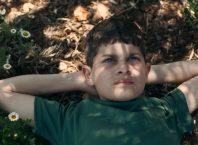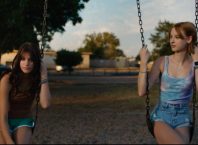“I have read 102 Israeli projects, 20 of them have been selected for Copro and these are the people we are talking to here,” said Tue Steen Müller, one of three mentors in the Master Class for Israeli documentary filmmakers that took place from March 18 – 20, “That’s a lot. Reading these 102, and looking at the clips, it’s like looking at the soul of a nation.”
Promoting the making of Israeli documentaries as an independent marketing channel for the past 13 years, CoPro’s main event is the Israeli Documentary Screen Market which will take place from May 29 – June 3, 2012. In preparation for pitching their projects to an international panel of television network executives and other industry professionals, the filmmakers selected to participate had the benefit of individual consultations with three mentors: Tue Steen Müller, Iikka Vehkalahti and Erez Laufer. Midnight East had the privilege of conversing with all three consultants individually, between their sessions with the filmmakers.
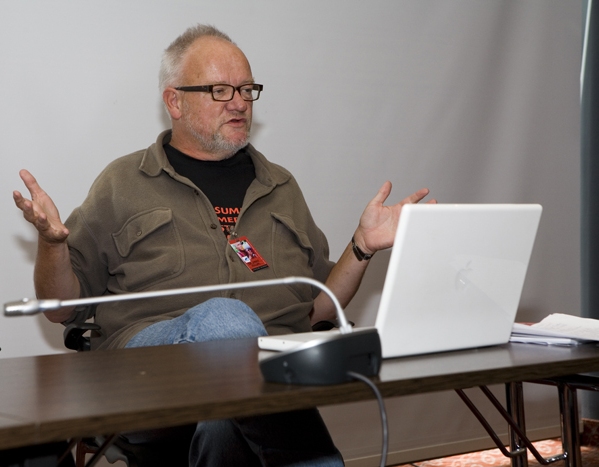
Founding director of the EDN (European Documentary Network), Müller’s extensive experience in the documentary field includes a twenty year stint at the National Film Board of Denmark, and the (Jørgen) Roos Award for his contribution to Danish and European documentary in 2005. In addition to consulting and teaching, Müller writes about film on his blog filmkommentaren (jointly run with Allan Berg Nielsen).
All three mentors have conducted similar workshops in other countries. According to Müller, in some respects, the experience is the same, “It’s not different whether it’s Israel, Argentina, Russia there’s no difference. You come into a room and you sit with some film people, you see some material, you read what their idea is, and you meet the people – and I think the last thing is very important. You need some psychological sense: who am I talking to? Who is sitting front of me, and sometimes that takes a little while to understand”
While there is much that can be taught in terms of “how to pitch,” it appears from talking to the mentors, that the sessions are just as much about figuring out “what” the filmmakers are pitching, as well as to whom. Müller asks, “What is your selling point? What is the most important in your topic? Is it a character? Is it the story? Is it you? Many of the films are personal…How are they going to tell the story? Is it using a dramatic structure like in a fiction film, building to a climax? Is it a very emotional or is it an informative film – that’s very different.”
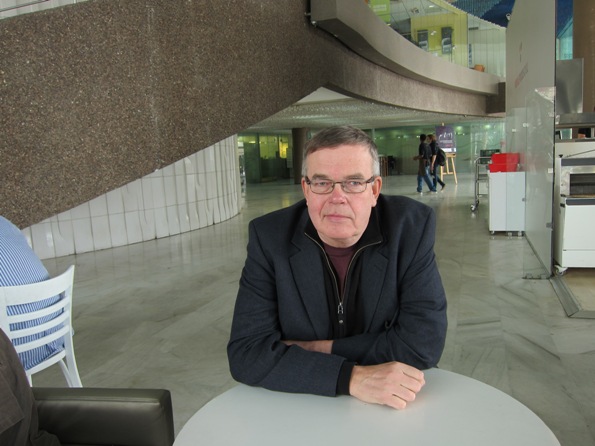
Iikka Vehkalahti, commissioning editor for YLE TV2 Documentaries in Finland since 1998, executive producer for “Steps for the Future” and “Another Finland”, series producer for Why Democracy, and board member in “Steps International,” “Steps India,” and IDFA, as well as the director of several award-winning documentaries, shares this perspective in some respects, saying, “We’re trying to find out what is the filmmakers intention…In one way you are supporting someone to do what he or she wants to do but in another way, by questioning and listening you try also that the film’s director will clarify to themselves what they really want to do, and in some sense to force them to make the decision of the selection, the choice early enough that you don’t keep different roads in existence because you haven’t decided which road to take. Because if you want to go to Jerusalem, you have to decide that you don’t want to go at the same time to Haifa.”
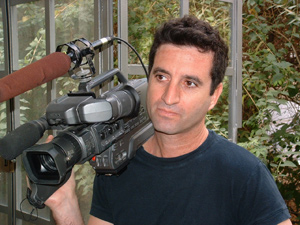
Talking to Erez Laufer, it is clear he would concur. Laufer has directed many award-winning documentaries in Israel, and has worked as an editor on international films, including the Oscar-nominated The War Room (1993) and My Country, My Country (2006), and other international projects such as “Steps for the Future.” When how his experiences as a film director influence his approach to teaching, Laufer responded, “What I have to say is this: a year ago, I participated in CoPro, I had a project at CoPro and I went through this process, I sat opposite Tue Steen from Denmark who is working with me now for 5 years as a co-mentor…and I sat with him and benefited a great deal from him. He forced me to focus myself – what do I want, what am I doing, and what is my focus?”
How do they define focus? Vehkalahti puts it this way, “When you know clearly in a simple way, not simple but clear what is the film about and how tell it, then you can also explain it to others. But you cannot teach to people to present something that is not yet clear to them.”
“Very often,” says Vehkalahti, “the titles of the films are not clear or not strong enough. If you have a good title it immediately leads you somewhere. Like we have here [one of the projects in the Master Class] a film called 1973. Then if the title of the film was, let’s say “1973 Today” that’s an immediately different film than “The days of 1973” because one leads to the past, another one leads to today. If I say “Trauma of 73” that’s a different film than “Sadam and Golda Meir 73” or if it’s “My story of ‘73” immediately the title leads the whole film to the director, that’s why it’s Important to have a title.”
Yet although the mentoring process is very focused on each individual filmmaker and project, the films inevitably reflect the cultural environment in which they originate. As Müller said, describing the initial process of reading the submissions, “The filmmakers in a way represent Israel. What do they want to tell about? Of course there were many stories connected to the Holocaust, there were many stories about social problems coming out of the Arab Jewish conflict, there are projects about the wars… I think there were only four or five that did not deal with Israeli reality or Jewish history. If there were 102 projects from Denmark, I can assure you more than half would take place outside Denmark. Stories from other countries. If you ask the documentarians they’d say: It’s so boring here there are no dramatic stories here.”
“Of course when you are reading these 102 projects,” says Müller, “you discover that this is a very stressed nation. There is an urgency to look at yourself all the time, and to interpret the past and the present from different perspectives. And then, and this has to do with what we talked, most of the projects are critical.
Israeli film directors are in that respect not representing the Israeli population because they are to the left. But this is probably also true in Denmark; I don’t think you’ll find Right wing filmmakers in Denmark.”
Attuned to the differences between cultures, Vehkalahti says, “If you are in India the filmmakers are not so trained, educated in the different ways of documentary stories. At the same time you have to take into consideration the incredible history, cultural complexity, their knowledge of the philosophical approach to the film that is stronger than what we [in the West] have…So you cannot just come to give a recipe of a totally different way, so you have to try to adopt the same images. Or like in South Africa, you have the question of the cultural confrontation – Do you really understand our lives or you just one of these fucking Europeans who are coming to advise us?”
Vehkalahti stresses the importance of an approach that respects the filmmaker’s project and intention, a method developed in the “Steps for the Future” project called ‘professional support.’ He explains the principle, “Professional support that means that you are enough good professional to support somebody else’s idea but you are professional, you are not doing your own film…very often when you are tutoring and mentoring it means somebody’s coming and giving you advice. Professional support means that you have an idea and I am with my professional capacity supporting your idea to come through. It’s like building: if you have a certain idea – I need for my family this kind of house – you need a carpenter, you need a plumber, you need an architect, you need people who will help you to realize your idea. Very often filmmakers who are working [in a mentoring capacity] they want to do film like they want to do and that’s not the idea. Not ‘I teach you to make like I would make the film’ That‘s a big difference. That’s why in South Africa we took several professional supporters in and out – when you fall in love [with the project] you are thrown out so that you don’t take over. So we call it coitus interruptus.”
As for Israel, Müller says, “Israeli docs are very strong, there’s a very good support system in Israel, there are 3 or 4 television channels which invest in documentary, a film fund which invests, and compared to many other countries the amount of money which are being given are pretty good…they always complain, but if you compare to other countries – come on! Israel, like the country where I come from, Denmark, it’s a small country and small countries – Finland, Sweden, Holland, Belgium – have always had a good tradition of docs. It is about portraying your own country, culture, social sphere and of course here, the political – I mean there are so many stories here…It’s also dealing with language, it’s important that language as a part of culture is being heard. Israelis make documentaries in the Hebrew language; Danes make documentaries in the Danish language. It’s part of keeping our history alive.”
“If you only encountered Finland through their activities in the documentary field,” Laufer comments, “you would think it was a superpower and not a small Nordic country,” and the same might be said for Israel’s presence on the documentary scene. Both Müller and Vehkalahti cite several Israeli favorites such as 5 Broken Cameras by Emad Burnat and Guy Davidi, A Film Unfinished by Yael Hersonski and Waltz with Bashir by Ari Folman; as commissioning editor Vehkalahti has bought many Israeli documentaries, and Müller has reviewed several on his blog, including films by Avi Mograbi and The Collaborator and His Family by Ruthie Shatz and Adi Barash.
In terms of documentary film, the cohort of mentors might not have seen it all, but they have certainly seen a lot. “Please surprise me,” says Müller, “because in many cases when you see the mainstream documentaries you know after 2 minutes how the film will be…but if you talk about documentaries as an art form, you need to say WOW! and it’s based on image. Let the images tell the story and not some voice…I’m still very easy to move, I can still cry. I cried yesterday [hearing one of the projects from CoPro].”
Iikka Vehkalahti has made a film in Israel in the past, when asked if he might consider making another in the future, at first he demurred, “It’s been ten years since I’ve made a film.” Then he continued, saying, “I have to admit that there is a photograph of a very small child in Israel…the photograph is incredible because the child is so innocent, open, accepting everything and I always thought that I would like to do a film: where does all that disappear, this open mindedness? Not only here, everywhere – the innocence and openness. You know, when you are working in the arts, many artists are actually children, the way they look at the world…One day I will make a film starting with this photograph.”

